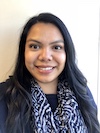Teaching Your First Lesson: What New Teachers Learned
Alternate route candidates are required to complete a pre-professional experience as preparation for their new teaching position. At the Rutgers Alternate Route Program, the requirement includes planning and delivering guest lessons under the supervision of a host teacher in an aligned content area or grade. Upon completion of their lesson, candidates draft written commentary about the planning and instruction processes and assess the experience of taking a lesson from page to stage. This requirement is critical as it provides candidates with the hands-on experience not only necessary for designing and teaching engaging lessons but also for developing the important habit of professional reflection for growth in their teaching practices.
Here are some key takeaway from alternate route candidates on their lesson delivery.
Set expectations and routines.
These candidates learned the importance of classroom management to support student learning:
“The most important thing I learned from this experience is that regardless of grade, age or subject, I must be organized, consistent and confident on the very first day I am with my students. In being that way, I will set the tone for how the rest of the school year will flow. Also understanding that it will take much longer than day one to produce the kind of classroom that my host teacher Mrs. Maxie has in place. It will take lots of time and plenty of consistency.” - Renita, Elementary School
“Students centered independent learning requires a well-managed classroom with clear routines rules and consequences. Lessons like this are stronger when developed with backwards design and knowing the end goal/ project to a unit of content.” - Catherine, Technology Education
Differentiate for students.
These candidates learned that knowing academic content is not enough for an effective lesson. A teacher should also know their students and be mindful of how they learn best:
“This experience taught me the importance of connecting students’ interests. There were definitely moments during the lesson that were heavily information based and I could see the students starting to drift out of engagement. It will be a challenge to maintain a constantly engaging classroom, but I know that it is essential in order to be highly effective as a teacher.” - Cara, English
“One thing I learned is that all students learn and work at a different pace. It is okay to allow certain students extra time to complete certain assignments, not all students should be expected to work at the same pace." - Christina
“I learned creative ways to involve students who may have different levels of ability, by spotting which students may be lost and asking for their opinions, or finding ways to involve students who may have trouble focusing.” - Kelly, English
Lessons and learning can be fun!
These candidates learned that teaching can be a fun experience for both the students and teachers. Fun can be maximized when lessons are thoroughly planned, engage students, and incorporate different resources:
“The most valuable takeaway was the importance of developing a comprehensive lesson plan. By taking the time to write a detailed plan, I made the lesson content more memorable for the students. I also enhanced the fun aspect of the lesson by investing a lot of time in the planning stage. As mentioned above, I also learned that I need to allow more time for most components of my lesson, especially the events that entail physical activity / relocation and guided practice.” - Scott, Elementary School
“I learned a lot about the importance for preparing for a lesson and the need to know the students individual plans when preparing. I feel like my enthusiasm for the topic transferred to the kids and how important it was to engage them in the lesson with real world examples.” - Robin, Elementary School
Our hope is that our teacher candidates take these reflections and continue to improve their practices as they continue with the program and gain exposure to more resources.

 Sharlene Laud has extensive experience in education from K-12 to higher education and holds a Doctorate in Education from the Rutgers Graduate School of Education. Dr. Laud is the Assistant Director of the Rutgers-GSE Alternate Route Program in the Department of Learning and Teaching. Follow her on X @sharlene_laud
Sharlene Laud has extensive experience in education from K-12 to higher education and holds a Doctorate in Education from the Rutgers Graduate School of Education. Dr. Laud is the Assistant Director of the Rutgers-GSE Alternate Route Program in the Department of Learning and Teaching. Follow her on X @sharlene_laud





